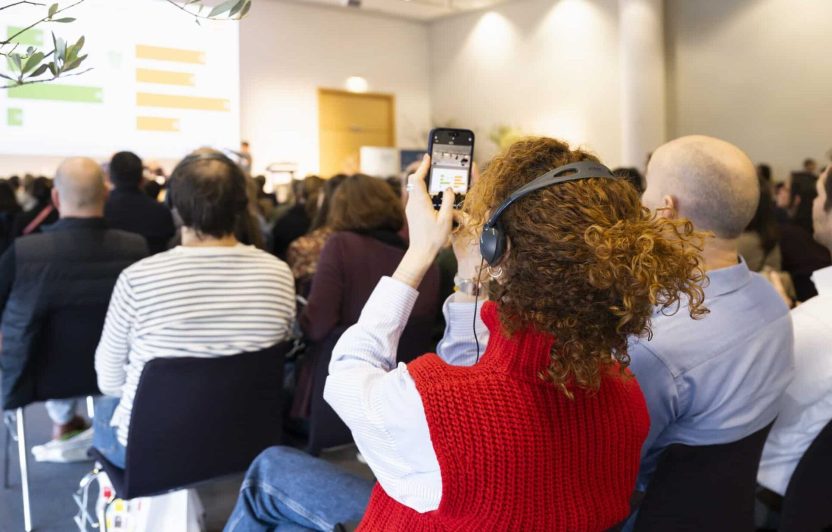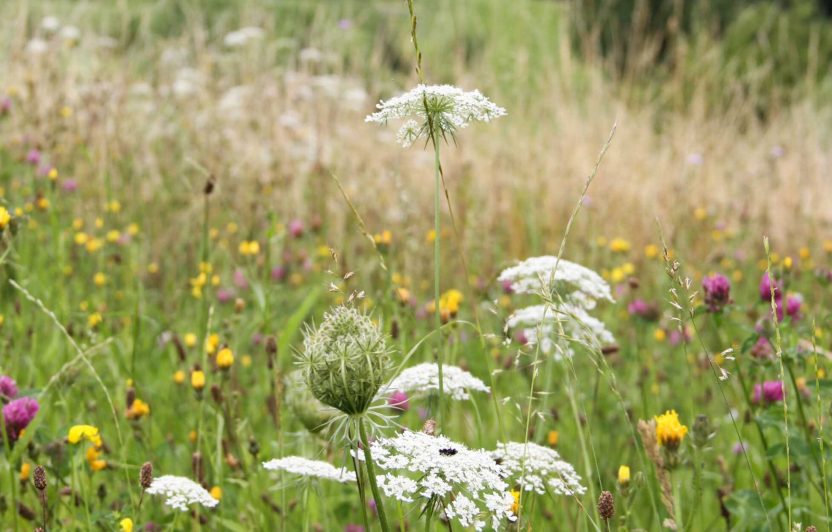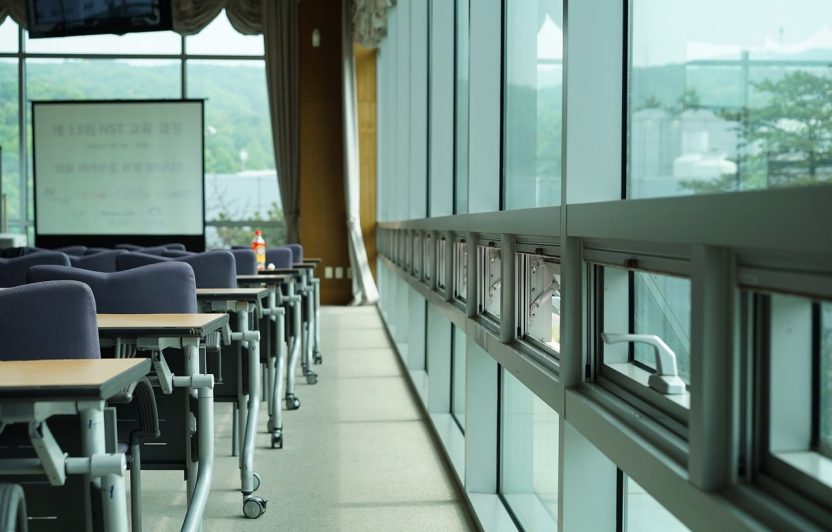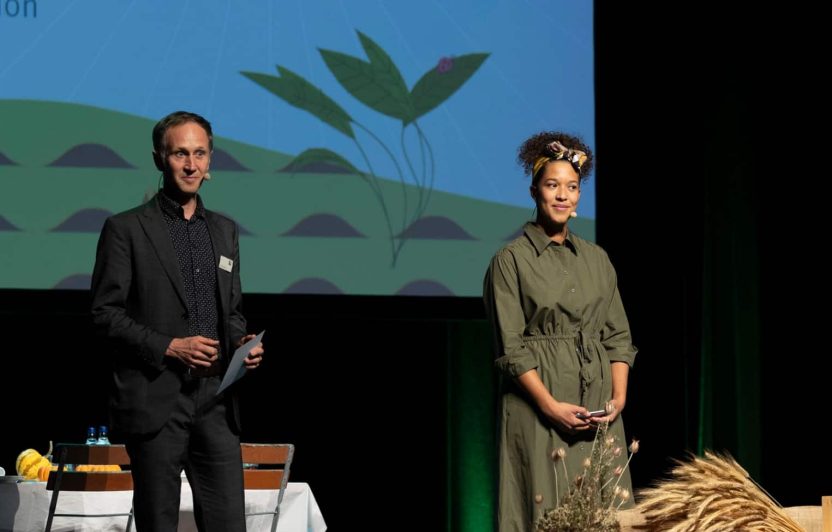1998 – The foundation of Biovision
World Food Prize winner and entomologist Hans Rudolf Herren founds Biovision together with Andi Schriber, Mathis Zimmermann and Jürg Weber. Their goal: to improve the living conditions of people in Africa and to preserve nature as the basis of all life in a sustainable way.


2001 – The beginnings
The first projects start in Kenya. Biovision hires so-called “Eco Trainers” who impart their knowledge of ecological farming methods, such as Push–Pull. You can still read about it in the Biovision newsletter from 2002.

Video portrait of Beryl Atieno Munika from Kenya, who found new self-confidence thanks to Push–Pull

2005 – The Organic Farmer is published
Dissemination of knowledge has been one of Biovision’s approaches from the very beginning. Accordingly, a magazine was created for farmers and published for the first time in 2005. Peter Baumgartner, former editor and Africa correspondent of the Zurich newspaper Tages-Anzeiger launched the Biovision project The Organic Farmer in Kenya after his retirement. You can still read the story about it in our newsletter from 2005 here (in German). Since then, the project has evolved and gone digital.



2006 – The first birthday photo
Biovision celebrates its eighth birthday. All staff members gather for a team photo together. There were only seven Biovision staff members at that time.

2007 – Biovision’s Infonet goes online
Another milestone in the dissemination of knowledge is the launch of the internet platform infonet-biovision.org. The natural scientist Monique Hunziker, now Biovision’s longest-serving member, played a major role. You can read the story here (in German).


Simone Niggli-Luder, fourteen-time orienteering world champion and biologist, was a Biovision ambassador until 2018. She was committed to nature-based and social development and to a world without hunger: “I hope that with my fame and popularity I can draw attention to the Biovision Foundation and its help for self-help in Africa”, she explained in 2007 as the step for her commitment as Biovision ambassador.

2008 – The first radio broadcasts
The Organic Farmer is broadcast on the radio for the first time. The programme reaches millions of listeners from the start, as can still be read here (in German) in the Biovision newsletter from 2008.

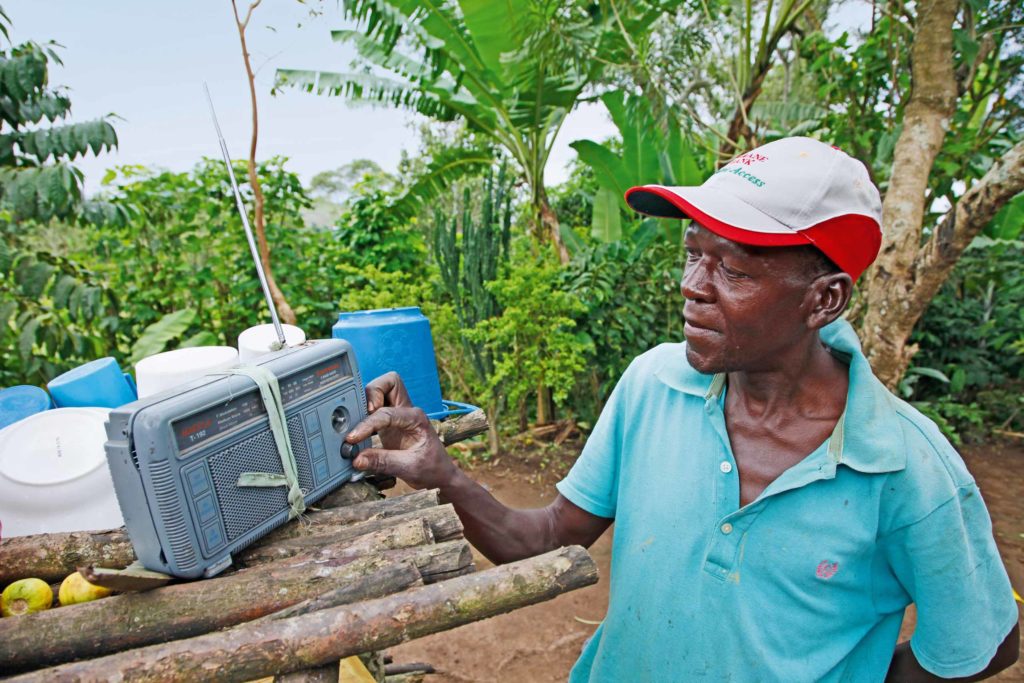

2009 – New projects develop
In Tanzania, the project “Bustani ya Tushikamane” is launched, from which the successful partner organization Sustainable Agriculture Tanzania (SAT) later emerges. A short version of the founding story, which still impresses today, was published on page 7 of Newsletter 26 (in German). Co-founder Alexander Wostry tells of its beginnings and how Biovision empowered SAT to achieve a breakthrough.


2010 – Biovision receives the One World Award
Hans Rudolf Herren of Biovision and the Kenyan organic farmer Rachel Agola are granted the One World Award. The prize is awarded to individuals, projects, organizations or companies that are committed to sustainable development, ecological agriculture, social justice and the protection of the environment.



2011 – CLEVER is born
A more sustainable world also requires participation in Switzerland. Biovision launches the project “CLEVER” for sustainable consumption in 2011.



2012 – First successes in politics
More and more, Biovision expands its policy and advocacy work. At the Rio+20 Conference, Biovision together with other NGOs successfully advocated for a more sustainable global agriculture. You can read about how Biovision took the step onto the international political stage at that time in Newsletter 24 (in German).


2013 – History is made
A historic event: Biovision and co-founder Hans Rudolf Herren (on the left) are awarded the Right Livelihood Award (“alternative Nobel Prize”), 2013

2014 – Globi becomes a Biovisionary
Globi is now also a true Biovisionary. Produced in collaboration with Biovision, the book Globi, the Clever Farmer is published. How Globi made the heads of Biovision staff spin during the production of the book can be read on page 7 in Newsletter 29 (in German).


2017 – SDSN Switzerland is founded
Together with the Centre for Development and Environment (CDE) at the University of BernBiovision founds the Sustainable Development Solutions Network (SDSN) Switzerland, which works to implement the United Nations Sustainable Development Goals (SDGs). Prominent guests already take part in the first conference in 2018: for Bertrand Piccard and Nobel Prize winner Jacques Dubochet.


Biovision officially becomes a partner organization of the Swiss Agency for Development and Cooperation (SDC) in 2017. SDC Director Manuel Sager (left) visits a bio-research project in Kenya.


2018 – 20 years of Biovision
The support of our partners and the commitment of Biovision’s staff bear fruit. 20 years after the foundation of Biovision, an overwhelming 1000 participants attend the anniversary symposium at Volkshaus Zurich in 2018.


2019 – Biovision opens an office in Geneva
Biovision takes a big step into the French-speaking part of Switzerland and expands its activities at home by opening its Geneva office in 2019.

In the same year, the Biovision Africa Trust (BvAT), an organization founded by Biovision and based in Nairobi, Kenya, celebrates its tenth anniversary. Hans R. Herren with Biovision CEO and BvAT President at the time Andi Schriber also attend the celebrations.


2021 – Important votes ahead
For the first time, Biovision carries out a large-scale information and awareness-raising campaign on the occasion of a federal referendum. The drinking water and pesticide initiatives, which are intended to make Swiss agriculture more sustainable, are placed on the ballot. The initiatives are rejected by the population.

2022 – The team has grown
What began with just a few staff members has grown into a team of impressive size almost 25 years later. In 2022, Biovision’s more than 40 employees gather for a group photo.



2023 – The successful food system summit
The Food System Summit takes place in Bern. The handover of the 126 recommendations from the Citizens’ Council for Food Policy and the scientific guide on levers and policy pathways for a sustainable future of Swiss food is the initial highlight of Biovision’s activities in Switzerland.


Biovision’s holistic, knowledge-based approach today extends from the field to the plate and involves all actors in the food system. We, biovisionaries, are committed to this with passion and expertise. To all those who support this global commitment, we say thank you from the bottom of our hearts.



